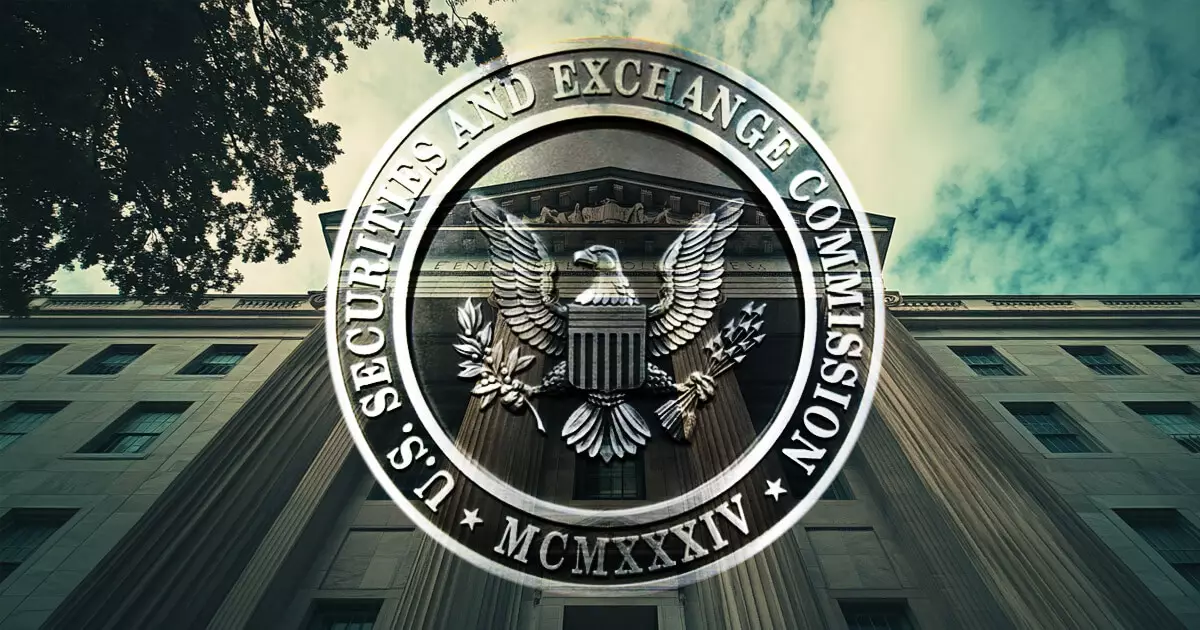The cryptocurrency landscape is known for its rapid evolution and complex regulatory environment. The recent settlement between TrustToken and TrueCoin, the organizations behind the TrueUSD (TUSD) stablecoin, and the U.S. Securities and Exchange Commission (SEC) underscores the ongoing tension between innovative financial products and regulatory compliance. This case not only highlights the potential pitfalls of the crypto space but also raises critical questions regarding investor protection, transparency, and market integrity.
For many in the crypto sphere, the allegations against TrustToken and TrueCoin sounded alarm bells. According to the SEC’s complaint, filed in the U.S. District Court for the Northern District of California, these companies had engaged in unregistered offerings of TUSD that were deemed investment contracts. The complaint detailed a timeline from November 2020 to April 2023, during which a significant amount of TUSD’s backing was allegedly mismanaged. The SEC claimed that these entities misleadingly marketed TUSD as fully backed by U.S. dollars or equivalents, while in reality, a predominant portion of the underlying assets was invested in a speculative offshore fund. By March 2022, it was reported that more than $500 million worth of TUSD assets were exposed to this fund, revealing staggering levels of risk that were not disclosed to investors.
What makes these allegations particularly troubling is the assertion that by September 2024, a staggering 99% of TUSD’s reserves were tied to the speculative fund. Such a lack of transparency not only violates regulatory expectations but also places investors in precarious situations without their knowledge. Jorge G. Tenreiro, Acting Chief of the SEC’s Crypto Assets & Cyber Unit, highlighted the necessity of registration, emphasizing that without it, investors are deprived of crucial information essential for making informed decisions.
In light of the SEC’s serious allegations, TrustToken and TrueCoin opted for a no-admit/no-deny settlement, which primarily serves to avoid the burdensome process of litigation. Agreeing to pay a combined total of $700,000 in penalties and disgorgement, these companies emphasized that focusing on future business prospects outweighed the costs associated with fighting the accusations. In their exclusive statement to CryptoSlate, the teams expressed intention to avoid distractions, alluding to the numerous opportunities awaiting them in the evolving crypto market.
Specifically, the settlement includes civil penalties of $163,766 from each company, along with additional payments from TrueCoin totaling approximately $373,000. Beyond the fine, the agreement includes injunctions meant to prevent future violations of federal securities laws, indicating that the SEC aims to impose stricter regulatory controls over crypto entities in the future.
The ramifications of this settlement extend beyond just the involved parties; they send ripples through the entire cryptocurrency market. Following the news, TUSD experienced a slight de-peg, which steered it below its target of $1, marking a noteworthy moment for a stablecoin that aims to maintain a consistent value. Though it briefly regained its peg, fluctuating between $0.98 and $0.999, such volatility raises concerns about the stability of digital assets amid regulatory scrutiny.
The settlement comes at a time of escalating regulatory oversight, which has intensified in recent years. In 2024 alone, the SEC reportedly imposed an unprecedented $4.68 billion in fines on the crypto sector, a significant increase from the previous year. Such vigorous enforcement suggests a turning tide towards stricter compliance requirements for cryptocurrency firms, marking a pivotal moment in the ongoing evolution of the crypto regulatory landscape.
As the crypto market matures, the need for accountability and transparency becomes increasingly essential. The settlement between TrustToken, TrueCoin, and the SEC serves as a stark reminder of the fragile nature of investor confidence within this innovative realm. With regulators stepping up their enforcement efforts, crypto companies must be committed to compliance and clarity, not only to avoid legal repercussions but also to foster a more trustworthy and stable environment for investors. The lessons learned here may shape the future of digital finance, nudging it towards a more regulated yet promising frontier.

